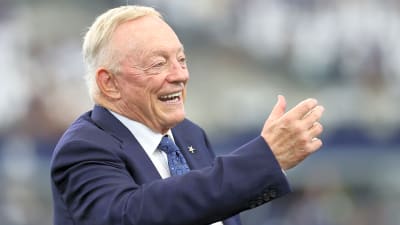
When a book has the phrase “A Life in Hockey” in the title, you would expect the transcribed thoughts of a retired player or coach, someone who has seen more sunsets than they’re going to see, whose arms have stretched to different continents and far above their heads, holding the Stanley Cup.
That’s why I raised an eyebrow at the title of Kevin McGran’s first book, Auston Matthews: A Life in Hockey, wondering how much could be written on the Toronto Maple Leafs captain, whose 28th birthday came just under two weeks before the September release date of the book.
But after reading, you can see that Matthews, whom the Leafs selected first overall in the 2016 NHL Entry Draft, has a story as unique as any player we’ve seen at hockey’s highest level.
Without speaking to Matthews or anyone from his immediate circle for this specific project, McGran, who has covered the Leafs for The Toronto Star since 2006 and has followed the star center since he first entered the league, expertly takes the reader through different stages of Matthews’ young life, including his introduction to hockey, success on and off the ice, and the same growing pains all teenagers and twentysomethings go through, minus the whole “playing in front of 18,000 people every other night” part.
The book starts with Matthews’ first-ever NHL game, the four-goal effort against the Ottawa Senators in October 2016 that let everyone know hockey’s next great goal scorer had arrived. But it quickly pivots to his parents, Brian and Ema, who spoke different languages when they met and spent their first dates attending Los Angeles Kings games in the early ’90s, soon after Wayne Gretzky arrived.
Brian and Ema had three children, Auston in the middle, then moved to Arizona, where Brian and his brother Bill took Auston to Phoenix Coyotes games. You learn of Brian’s past as a college baseball player, how he would throw pitches to Auston that most fathers couldn’t: fastballs, sliders, anything with movement, and how his son would hit everything, developing hand-eye coordination that helped pave the way for a career in professional sports.
There’s an anecdote early in the book on Matthews splitting his time between sports, highlighting how naturally gifted he was. He showed up in the fifth inning of a baseball game after he was finished on the ice; hit a grand slam in his first plate appearance, then hit the game-winning home run in the seventh inning before heading back to the rink for another hockey game, skipping the second of the baseball double-header. Some people are just very good at sports. Some are much better than very good. Matthews is in the latter.
Most hockey fans know the brushstrokes of Matthews’ career: grew up in Arizona, skipped both the major junior and college route in favour of becoming a professional in Switzerland, became an immediate star in the NHL, has won multiple scoring titles and a Most Valuable Player award. It’s like the opening paragraph of someone’s Wikipedia page. But through McGran’s meticulous research, decades of top-tier reporting and a pursuit to humanize one of Toronto’s greatest professional athletes, he shines when he marks down the specific moments that shaped Matthews, where readers can pick up on how the skilled forward’s all-world work ethic was developed, how the upbringings and backgrounds of his parents molded arguably the greatest player in Leafs history.
This is most evident during the chapters that focus on Matthews’ relationship with Boris Dorozhenko, or “Uncle Boris.” The retired Ukrainian hockey player took a job to coach in Mexico, followed by a chance encounter with Brian and Auston Matthews, with father seeing major progress in son through Dorozhenko’s skating lessons. McGran then paints a picture of a dad — who never played hockey before — trusting a complete stranger with the development of his boy, giving complete autonomy to an Eastern European coach whose methods differed greatly from the traditional style of Ontario Triple-A coaches and USA Hockey scouts, making the reader wonder if Auston’s father not knowing any better actually benefited more than any retired minor leaguer could have.
Athlete-focused biographies can be hit and miss, little more than copy-and-paste blurbs with crumbs of insight into who he or she was away from the arena, how they went from someone running around at recess to giving their Hall of Fame speech, years after retiring. McGran breaks away from that, and what’s refreshing is how a veteran hockey scribe who has written thousands of pre-game notes and post-game recaps and playoff predictions took a fresh approach on the genre, taking a subject who isn’t yet 30, but feels like he’s already lived a rich, full career in the game.
Matthews is only one person, but it’s taken thousands of lifetimes and chance encounters and choose-your-own-adventure decisions for someone with his background and upbringing to not only make a living from hockey, but be on a path towards being one of the greatest to ever do it.
No wonder McGran wanted to write this book, and we’re lucky that he did. What’s even luckier is that, with Matthews being only 28 years old, there’s still so much more to write.
More must-reads:
- Who is the winningest coach for every NHL franchise?
- Maple Leafs get boost for the long term with latest roster news
- The '60-goal NHL seasons' quiz
Breaking News
Trending News
Customize Your Newsletter
 +
+
Get the latest news and rumors, customized to your favorite sports and teams. Emailed daily. Always free!








